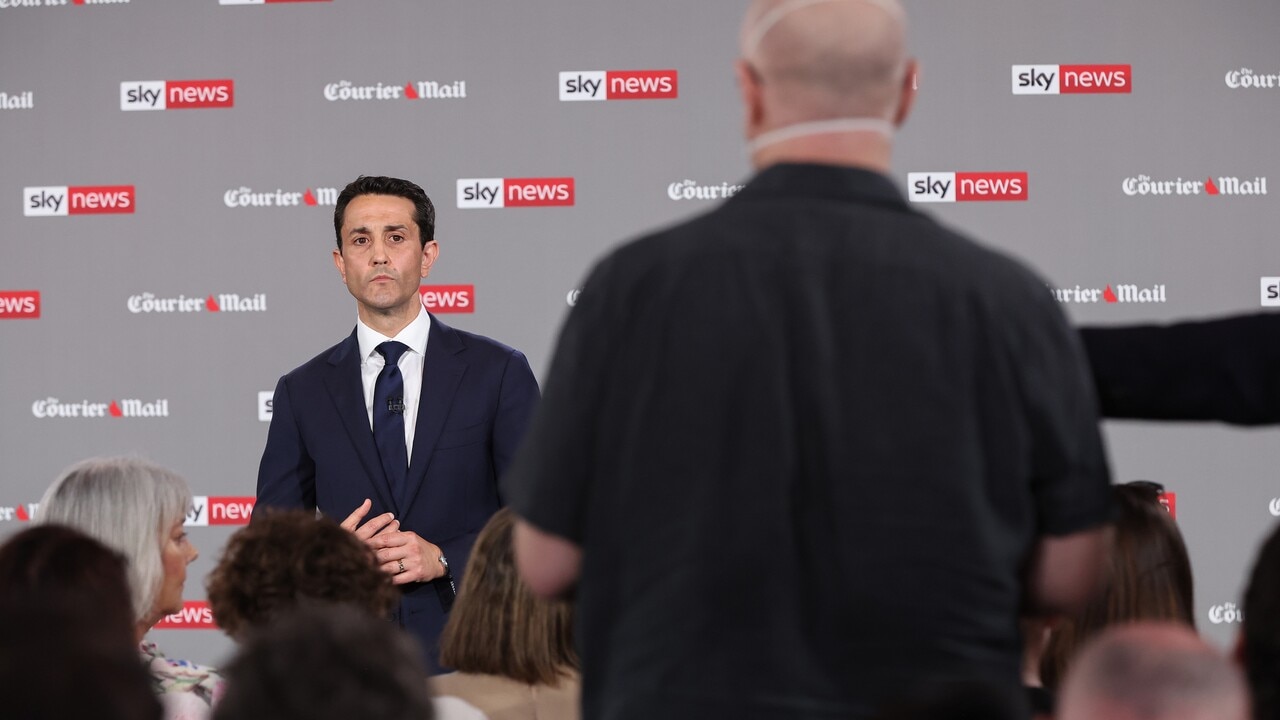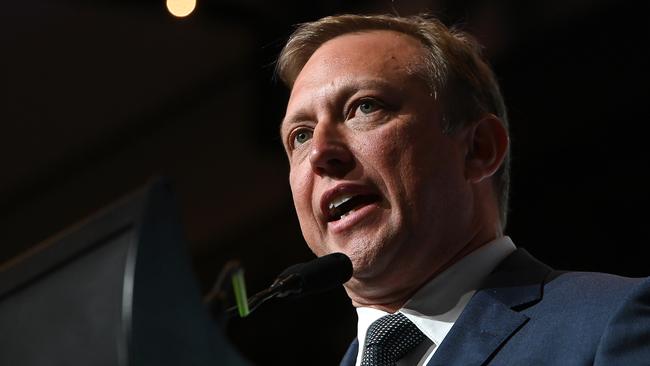How abortion debate impacted the Queensland election campaign
As abortion laws make an unexpected return to the national conversation, experts are warning about the dangers the debate could pose for women.

It’s normally a taboo topic, but when a minor party threatened to push to change abortion laws in Queensland, the upcoming state election was turned on its head, with experts warning the discussion was entering “dangerous” territory.
Queenslanders will be voting on Saturday to elect their next government for the next four years.
Amid the cost of living crisis and the concern about youth crime, the topic of abortion was never expected to be on the cards as a major talking point for either Labor or the LNP during the campaign.

But when Katter Australian Party leader Robbie Katter revealed his ambition to amend the laws around abortion - which was decriminalised in 2018 - election coverage quickly became dominated by the topic.
On October 8, Mr Katter said he would introduce a private members bill to repeal or amend abortion laws if the LNP won a minority government.
However, Mr Katter later clarified on Tuesday that his plan wasn’t as widespread as originally advertised.
“If a baby, planned abortion, comes out with anything, a heartbeat and is probably going to struggle for life – they can give it some care and dignity,” Mr Katter told Sky News.
He’s since further clarified that he was now simply pledging to focus first on reintroducing his Babies Born Alive Bill.
It’s a talking point that changed the game plan for both Labor and the LNP.
Opposition leader David Crisafulli was asked more than 130 times throughout the three-week campaign about his stance on abortion, after he’d voted against the bill in 2018.

Labor has since run a strong campaign against the LNP position on abortion - or lack thereof - and even Premier Steven Miles has used every chance he could, including during the two leaders debates, to ask whether his opponent supported a woman’s right to choose.
During the final debate on Tuesday, Mr Crisafulli finally replied “yes” to the question, after being dogged by the issue for weeks, his repeated claims the LNP had “no plans” to change the current law failing to make the issue disappear.
The hot topic has left many people worried about the future of abortion laws in Queensland.
University of Sydney Professor Deborah Bateson said there was a fine line when talking about women’s health.
“In Australia we have decriminalised (abortion), we’ve made those positive steps in every state and territory,” Dr Bateson said.
“We know the decision to have an abortion is made by an individual person, it’s a very personal decision made in a consultation with a doctor or nurse to work out that having made that decision what’s the best approach to have a medical or surgical abortions.”
The debate around abortion care and rights became a surprising talking point at a federal level this week as well, after opposition Indigenous affairs spokeswoman Jacinta Nampijinpa Price told the SMH on Tuesday that she had concerns about abortions past the first trimester.
“Late term is anywhere past the [first] trimester as far as I’m concerned … Full-term becomes infanticide and I cannot agree with that,” she said.

Afterwards, federal Deputy Opposition Leader Sussan Ley said her party had “no intention” to push for any change to current abortion laws.
“Access to abortion is a state issue, which is why you often see it debated at state level,” Ms Ley told Sky News on Wednesday.
“And we have no intention to change the settings from a federal health perspective.
“Obviously, individuals have their own views, and Jacinta is entitled as a member of the National Party to her own view, but the federal Liberals have no intention of changing the settings when it comes to this issue.”
Other Coalition members shared their views throughout the week, with opposition finance spokeswoman Jane Hume confirming “a Dutton-led Coalition government has no plans, no policy and no interest in unwinding women’s reproductive rights”.
“It has been an issue raised by fringe parties in a state election. It is not an issue for federal politics and there is no plan to change or unwind women’s reproductive rights in Australia,” Ms Hume told Sky News on Wednesday.
Political scientist and UQ lecturer Adam Hannah told NewsWire the ongoing debate about abortion is the last thing the LNP needed during the state election.
“The opposition leader has been asked repeatedly and hasn’t had a satisfying answer. I think that has generated the focus on the story,” Dr Hannah said.
“The LNP at a state level would like to see that conversation stop and they haven’t been able to do that.
“It’s expanded into an ongoing national issue and the more Labor has had a chance to keep prosecuting that message over and over again, the more voters they could have been potentially be able to reach.
“Those sorts of issues (like abortion) can drive a swing in a way that others won’t necessarily do.
“It’s been interesting to watch how this has turned into a national conversation.”

But Dr Bateson said the recent debate around abortion in Queensland, and now at a federal level, is “dangerous”.
“It just raises that debate, that people sometimes who don’t have the facts are putting out their ideas which are not evidence based,” she said.
“I think it’s dangerous.
“We can never be complacent, we can never say we’ve sorted it but we were making such positive movements in Australia.
“South Australia was the last to remove it from criminal law and this was us saying we’re supporting the reproductive rights of people across the country.
“Now is the time to have the conversation so it doesn’t become a juggernaut and that we do have these sensible insightful discussions but just allow doctors and nurses to get on with their business and provide safe abortion care.
“If it was criminalise it, that would all be in jeopardy.
“We have made these positive steps and we just must ensure they’re protected, that abortion is critical part of healthcare and needs to be protected to support women’s decisions and accessing services,” she said.
“I think it can be dangerous, we must be vigilant and be able to provide the community understanding.
“That understanding of why it needs to be protected, why it's so essential women can be in control of their own bodies and make their decisions free of political interference, free of stigma and we obviously need to be able to provide those compassionate services to the people who need an abortion.”
Dr Bateson said she hoped as the election nears its end that the focus will shift away from any of the abortion debate because it ultimately is a healthcare matter and has nothing to do with criminal law.
“We know that there’s public sentiment, there’s been many polls that the public is behind this because abortion is an essential and critical part of healthcare,” she said.
“And like every other part of healthcare procedures, it needed to be treated just in the same way with the same regulations and oversight and not in the criminal law.
“It’s about ensuring that the community as well has the facts but we do know from the polls (of) women from all backgrounds and all walks of life, we know it can be very close in all families.”





